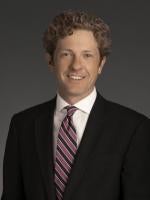It’s been an eventful week at One First Street wherever The Nine are remote-working. On Tuesday, the Court heard oral arguments via telephone for the first time ever and—perhaps even more notable—permitted a live audio broadcast for the first time ever. Later that day, Justice Ginsburg was hospitalized (sadly not for the first time), but was in good enough shape to participate in the second ever day of remote arguments on Wednesday, during which someone made history with the first ever (one assumes) audible toilet flush during an argument. And to top it off, yesterday the Court released two new opinions—both unanimous.
First up, in Kelly v. United States (No. 18-1059), the Supreme Court reversed the convictions of two former Chris Christie aides who were caught up in the “Bridgegate” scandal. You remember that one, don’t you? Back in 2012-13, when then-New Jersey Governor Chris Christie was running for reelection, he hoped to bolster his presidential aspirations by gaining endorsements from Democratic mayors in his state. When Fort Lee’s mayor refused to play along, several Christie aides, including his Deputy Chief of Staff Bridget Anne Kelly, conspired to punish him by reducing the traffic lanes that had long been reserved for Fort Lee morning commuters on the George Washington Bridge. The scheme may have been a little too effective, though. The resulting traffic chaos—including stranded school buses and delayed ambulances—resulted in an investigation and, later, criminal charges against Kelly and her cohorts. Specifically, the Government charged them with wire fraud, fraud on a federally funded program or entity (namely, the Port Authority), and conspiracy to commit those choate crimes. They were convicted, and the Third Circuit affirmed.
The Supreme Court unanimously reversed. Writing for the rest, Justice Kagan explained that a key element of both federal offenses is that the offender seeks to obtain property by fraud. The wire fraud statute prohibits only deceptive “schemes to deprive [the victim of] money or property,” and the federal-program fraud statute bars “obtain[ing] by fraud” the “property” (including money) of a federally funded entity like the Port Authority. Although there previously had been a statute criminalizing “honest services” fraud, the Court struck it down as unconstitutionally vague in Skilling v. United States (2010). “The upshot,” Justice Kagan wrote, “is that federal fraud law leaves much public corruption to the States . . . to rectify. Save for bribes or kickbacks (not at issue here), a state or local official’s fraudulent schemes violate that law only when, again, they are ‘for obtaining money or property.’” Here, of course, the purpose of the scheme was not to obtain money or property, but to punish a political holdout. The Government argued that, in fact, Kelly’s scheme did result in a loss of property: She effectively “commandeered” the lanes that were shut down, and she caused the Port Authority to expend money compensating the traffic engineers and back-up toll collectors who unwittingly assisted in the lane realignment. But that, Kagan insisted, is not enough, for “a property fraud conviction cannot stand when the loss to the victim is only an incidental byproduct of the scheme. While she acknowledged that Kelly’s acts were an “abuse of power,” Justice Kagan reiterated that “not every corrupt act by state or local officials is a federal crime.”
The Court was also unanimous in yesterday’s second decision, United States v. Sineneng-Smith (No. 19-67), in which it reversed a Ninth Circuit judgment striking down a criminal statute as unconstitutionally vague—not because the law is sound, but because the Ninth Circuit went “beyond the pale” in injecting the vagueness question into the case to begin with.
Up until Thursday, anyone following would have though this case was about whether a federal statute, 8 U.S.C. 1324(a)(1)(A)(iv)—which makes it a crime to “encourag[e] or induc[e] an alien to come to, enter, or reside in the United States, knowing or in reckless disregard of the fact that such coming to, entry, or residence is or will be in violation of law.” Sineneng-Smith, who operated an immigration consulting firm and assisted clients in filing false applications for labor certification, argued, in her cert petition and merits brief, that the statute was unconstitutionally vague, because it would criminalize a great deal of conduct that is protected by the First Amendment. The problem, however, is that she didn’t raise that question in the trial or appellate courts. To be clear, she had argued that the statute was unconstitutional as applied to her, but it was the Ninth Circuit panel that introduced the broader void-for-vagueness question and appointed three different amici to argue it. This, the Supreme Court held, went too far. Our adversarial adjudication system follows the principle of party presentation, Justice Ginsburg wrote, for a unanimous Court. Here, the Ninth Circuit “departed so drastically from the principle of party presentation as to constitute an abuse of discretion.”
Now, you might wonder how the Supreme Court—which routinely appoints amici to argue positions that the parties had not raised—can cast a stone at the Ninth Circuit (especially when, in this very case, the parties had focused on the substantive constitutional question, not the party-presentation principle.) Justice Ginsburg acknowledged that the party-presentation principle is “supple, not ironclad” and that there are times when it is appropriate for courts to take on a “modest initiating role.” In an addendum, she listed all the cases in which the Supreme Court had called for supplemental briefing or appointed amici in recent years, insisting that “[n]one of them bear any resemblance to the redirection ordered by the Ninth Circuit panel in this case.” Because the Ninth Circuit’s “radical transformation of this case goes well beyond the pale,” the Court vacated its judgment and remanded the case “for consideration shorn of the overbreadth inquiry interjected by the appellate panel and bearing a fair resemblance to the case shaped by the parties.” (The Court did not advise the Ninth Circuit panel on what it should do if when Sineneng-Smith raises the overbreadth argument herself on remand….)
Justice Thomas joined Ginsburg’s opinion, but wrote separately to address the substantive question. In his view, the Ninth Circuit’s judgment violated “far more than the party presentation rule,” because it relied on the overbreadth doctrine, which “lacks any basis in the Constitution’s text, violates the usual standard for facial challenges, and contravenes traditional standing principles. Although he recognized he had previously joined decisions applying the doctrine, he now believes that it should be reconsidered in an appropriate case.
That’s all for now. Next week, the Court hears argument in some of the most hotly anticipated cases of the term, and you can tune in live. (Just make sure your phone is muted…)





 />i
/>i
